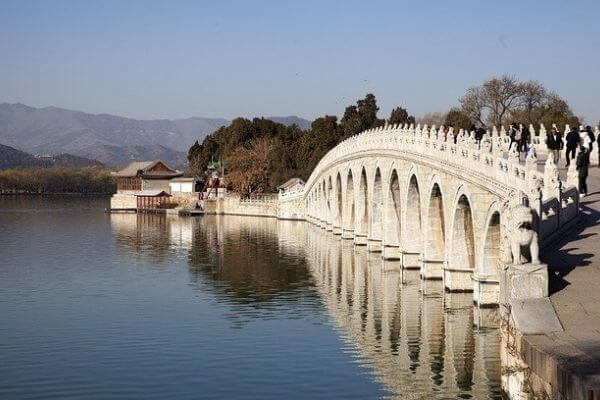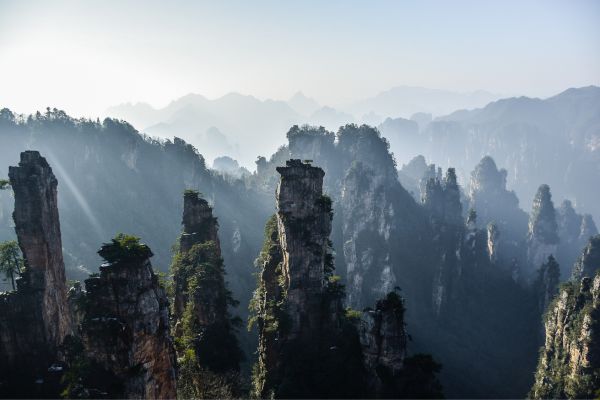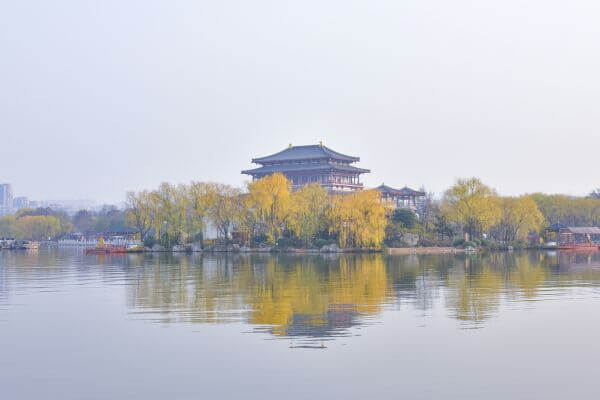
Chinese voters can elect deputies to the primary people’s congresses, and the people’s congresses can elect their heads at the same level and deputies to people’s congresses at the next higher level, while the President of the State is elected by the National People’s Congress (NPC).
I. Who is qualified to participate in the election
Any citizen of China who has reached the age of 18 shall have the right to vote and the right to stand for election, regardless of their identities, unless he/she has been sentenced to the deprivation of political rights by the court. (Article 4 of Election Law)
II. What are elective positions
In China, the National People’s Congress is the State power, in the sense that it is empowered to make legislation and elect the heads.
The National People's Congress consists of deputies. Voters cannot elect the heads, but they can directly elect deputies to the people’s congress at the lowest level. (Article 3 of the Election Law)
Specifically,
1. How many levels of people’s congresses are there in China?
There are five levels of people’s congresses in China in accordance with the descending order of their authorities, namely:
the NPC at the first level;
the people’s congresses of provinces at the second level;
the municipal people’s congress at the third level;
the people’s congress of counties and districts at the fourth level;
the people’s congress of townships and towns at the fifth level.
It also reflects the administrative divisions in China. China is divided into a number of provinces, each province is divided into a number of cities, each city is divided into a number of counties and districts, and each county is divided into a number of townships and towns.
2. Who can be elected directly by voters?
Voters may directly elect deputies to the people’s congresses at the fourth and fifth levels, i.e. deputies to the people’s congresses of townships, towns, districts, and counties. (Article 3 of the Election Law)
3. Who elects deputies to the NPC, and people’s congresses of provinces and municipalities?
Deputies to the people's congresses of districts and counties shall elect deputies to the municipal people’s congress; deputies to the municipal people’s congress shall elect deputies to the people’s congress of province; and deputies to the people’s congress of province shall elect deputies to the NPC. (Article 3 of the Election Law)
4. Who can elect the leaders?
For the first level, the NPC elects the head of State and the heads of the judicial organs, i.e., the President of the State, the President of the Supreme People's Court, the Procurator-General of the Supreme People's Procuratorate and the Director of the National Supervisory Commission, and, upon nomination by the President, decide on the leaders of the central administrative organs, namely, the Premier of the State Council. (Article 62 of the Constitution)
For the second level, the people’s congresses of provinces shall elect the heads of the administrative and judicial organs at the provincial level, namely, the governors of the provinces or municipalities directly under the Central Government, presidents of high people’s courts, chief procurators of the procuratorates at the provincial level and directors of the supervision committees at the same level. (Articles 8 and 44 of Local Organization Law)
For the third level, the municipal people’s congress shall elect the leaders of the municipal organs, institutions, and judicial organs, namely the mayor, presidents of intermediate people’s courts, chief procurators of the municipal procuratorate, and directors of the supervisory committee at the same level.
For the fourth level, the people's congresses of districts and counties shall elect the responsible persons of administrative organs and judicial organs at the district/county level, namely, the heads of the district/county, presidents of primary people’s courts, chief procurators of procuratorates at the district/county level, and directors of supervisory committees at the same level.
For the fifth level, the people’s congress of townships and towns shall elect the heads of the administrative organs and institution at the same levels, namely, the heads of townships/towns. There are no judicial organs in towns and townships, only agencies dispatched by judicial organs at the district/county level.
III. How to elect deputies to people’s congresses
The electoral process shall consist of the following steps: division of constituency, voter registration, nomination of deputy candidates, and votes.
1. Determination of Election Institutions
Where voters directly elect deputies to the people’s congresses of districts, counties or townships and towns, the standing committees of the people’s congresses of districts, counties or townships and towns shall establish election committees to organize the election.
Where the people’s congresses of districts, counties, municipalities and provinces are to elect deputies to the people’s congresses at the next higher level, the standing committees of the people’s congresses at the corresponding levels shall organize the deputies at the same level to vote. (Article 9 of the Election Law)
2. Division of constituency
As voters can directly elect deputies to the people’s congresses of districts, counties or townships and towns, only the elections of the people’s congresses at these two levels are required to be divided into constituencies. The quotas of deputies to the people’s congresses will be allocated to each constituency. (Articles 25 and 26 of the Election Law)
3. Voter registration
Voter registration is carried out by different constituencies, and the voters’ qualifications confirmed through registration shall have long-term validity. (Article 27 of the Election Law)
4. Proposal of candidates for deputies
All political parties and people’s organizations may jointly or individually recommend candidates for deputies. Voters or deputies, with more than ten people jointly, may also recommend candidates for deputies. (Article 30 of the Election Law)
5. Votes
Where voters directly elect deputies to the people’s congresses, the voters obtain their ballots with their ID cards or voter certificates, and then cast their votes in polling stations and mobile ballot boxes.
Where the people's congresses of districts, counties, municipalities and provinces are to elect deputies to the people's congresses at higher levels, the presidium of the people’s congress at the same level shall organize deputies to vote. (Articles 37, 38 and 39 of the Election Law)
6. How to determine whether a deputy is successfully elected
Where voters directly elect deputies to the people’s congresses, the election is valid if more than half of all voters in the constituency vote. A candidate is elected when he/she receives more than half of the votes of the voters who participated in the voting.
Where the people’s congresses of districts, counties, municipalities and provinces are to elect deputies to the people's congresses at the next higher level, candidates for deputies shall be elected only if they have obtained more than half of the votes of all the deputies. (Article 45 of the Election Law)
IV. How are leaders elected?
1. Central government leaders
(1) Nomination
Candidates for the chairman, vice-chairmen, secretary-general, and members of the Standing Committee of the NPC, candidates for the President and Vice-president of the State, candidates for the chairman of the Central Military Commission, and candidates for the president of the Supreme People’s Court and the chief procurator of the Supreme People’s Procuratorate shall be nominated by the presidium of the NPC. After the proposed list is deliberated by the delegations, the presidium will determine the official candidates' list based on the opinions of the majority of deputies. (Article 13 of the NPC Organization Law)
The candidate for the Premier of the State Council shall be nominated by the President of the State; the candidate for the heads of the internal departments of the State Council shall be nominated by the Premier. (Article 62 of the Constitution)
(2) Getting elected
Where a session of the NPC elects or decides on the appointment of leaders, secret ballots shall be adopted, and the candidate who has obtained more than half of the votes and obtained the most votes shall be elected. (Article 36 of the Rules of Procedure of the NPC)
2. Local leaders
(1) Nomination
The leaders of local administrative organs and judicial organs, as well as candidates for members of the standing committees of local people's congresses, shall be jointly nominated by the Presidium or deputies to the people's congress at the corresponding level. (Article 16 of the Local Organization Law)
(2) Getting elected
Where the people's congresses of towns, townships, districts, counties, municipalities, and provinces elect their leaders at the same level, the candidate who has obtained more than half of the votes and obtained the most votes shall be elected. If the number of votes is equal among several candidates, another voting shall be conducted for those candidates. (Article 24 of the Local Organization Law)
Other posts you may also be interested in are as follows:
How Do Elections in China Work?
What is the Crime Rate in China?
How Many Crimes Are Punishable by Death in China?
What is the Court System Like in China?
What Are the Main Laws in China?
What is the Conviction Rate in China?
For more interesting posts about Chinese Law, please check China Law in One Minute.
References:
1. The Election Law for the National People’s Congress and Local People’s Congresses at All Levels (“the Election Law”, 全国人民代表大会和地方各级人民代表大会选举法)
2. The Organization Law for Local People’s Congresses at All Levels and Local People’s Governments at All Levels (“the Local Organization Law”,地方各级人民代表大会和地方各级人民政府组织法)
3. The Law on Deputies to the National People’s Congress and Local People's Congresses at All Levels (“the Deputies Law”,全国人民代表大会和地方各级人民代表大会代表法)
4. The Organization Law for the National People’s Congress (“ the NPC Organization Law”,全国人民代表大会组织法)
5. The Rules of Procedure for the National People’s Congress (“the NPC Rules of Procedure”, 全国人民代表大会议事规则)
Contributors: CJO Staff Contributors Team









